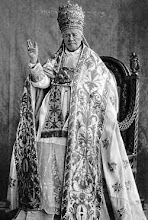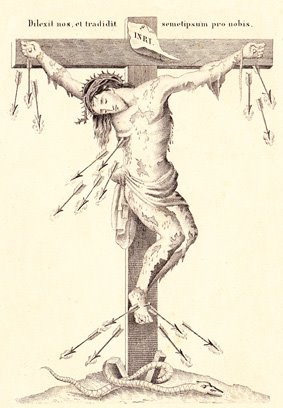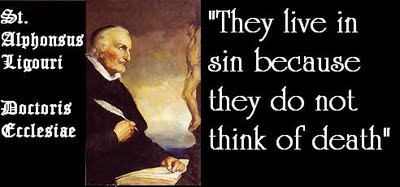Taken from Pious Reflections
Blessed are the poor in spirit, for theirs is the kingdom of heaven.1 By “the poor in spirit” is meant those who are poor in earthly desires, and desire nothing but God. These are poor in desires, but not without affection, because they live contented even in this life; and, therefore, the Lord does not say, “Theirs will be the kingdom of heaven,” but “theirs is,” because even in this life they are rich in spiritual blessings which they receive from God; and thus, however poor they are in temporal goods, they live content with their condition. They are different from the rich in earthly desires, who, in the present life, whatever riches they possess, are always poor, and live discontented; for the good things of this life do not satisfy our thirst, however much they are increased; wherefore, these persons are never contented, never attaining to the acquisition of what they desire.
In order to enrich us with true riches, Jesus Christ chose to be a poor man, as the Apostle writes, For your sakes He became poor, that by His poverty ye might become rich.2 He chose to be poor in order to teach us by his example to despise earthly blessings; and thus to enrich us with heavenly blessings, which are infinitely more precious, and which last forever. Wherefore he declared that whoever did not renounce every species of attachment to this earth could not be his true disciple.
Happy he who desires nothing but God, and can say, with St. Paulinus, “Let the rich have their riches, kings their kingdoms; Christ is my wealth and my kingdom.”3 Let us rest assured that God alone can content us, but he does not fully content any but those souls which love him with a whole heart. And what place can the love of God find in a heart that is full of this earth? Such people may go often to communion, and pay visits to the Blessed Sacrament; but, because this earth is in their hearts, God cannot wholly possess them, and enrich them as he would.
Many souls lament that in their meditations and communions, and in their other most devout exercises, they do not find God. To such St. Teresa said, “Detach thy heart from all creatures, and thou shalt find God.” Let us strip ourselves of every affection that tends to earthly things, and especially of our own will; let us give to God our whole will, without reserve, and say to him, “Lord, do Thou dispose of me, and of all I have, as Thou wilt; I desire nothing but what Thou desirest, and I know that what Thou wilt is the best for me. Grant me, then, that I may ever love Thee, and I desire nothing more.”
The only means for detaching ourselves from creatures is to acquire a great love for God. If the love of God does not go so far as to obtain the mastery over our own will, we shall never attain to being saints. The means for acquiring this ruling love is devout prayer. Let us constantly pray to God to give us his love, that we may thus find ourselves detached from every created thing. Divine love is a thief, which, in a holy way, robs us of all earthly affections, and causes us to say, “What other thing do I desire but Thee alone, O God of my heart!”
Love is strong as death.4 This means that as there is no power that resists death, so there is nothing, even of things most invincible, that can resist the love of God. Love conquers everything. With the love of God the martyrs conquered the fiercest torments and the most agonizing deaths.
Oh, happy indeed is he who can say with David, What have I in heaven, and what have I desired upon earth, but Thee, O God of my heart, and my portion forever! What else can I desire in this life and in eternity, but Thee alone, O my God? Let others find the good things they choose; be Thou, O God of my heart, my only good; be Thou all my peace.
In what peril does the soul stand of losing God and perishing when it has not attained to the giving itself wholly to God; while he who has truly given himself altogether to God can rest secure of never leaving him, because the Lord is truly merciful and faithful to every one who gives himself to him without reserve. But why is it that some persons, who began by living a holy life, afterwards fall so grievously, that they leave us little hope of their salvation? Why, indeed, is this? I answer, that they had not given themselves wholly to God; and this their fall is the proof of it.
O my God, and my true lover! suffer it not that my soul, which was created to love Thee, should love any thing apart from Thee, and should not wholly belong to Thee, who hast purchased me with Thy blood. O my Jesus! how is it possible that, after having known the love which Thou hast borne to me, I can love anything apart from Thee? Draw me continually within Thy heart; make me forget everything that I may neither seek nor sigh after anything but Thy love. O my Jesus! in Thee I trust. O Mary, Mother of God! in thee is my hope; detach me from the love of everything that is not of God, that he may be the one object of all my affections, and of my eternal happiness.
1“Beati pauperes spiritu, quoniam ipsorum est regnum cœlorum.” -- Matt. v. 3.
2“Propter vos egenus factus est, ut illius inopia vos divites essetis.” -- 2 Cor. viii. 9.
3“Sibi habeant divitias suas divites, sibi regna sua reges; nobis gloria et possessio et regnum Christus est.” -- Ep. ad Aprum.
4“Fortis est ut mors dilectio.” -- Cant. viii. 6.
Subscribe to:
Post Comments (Atom)























No comments:
Post a Comment